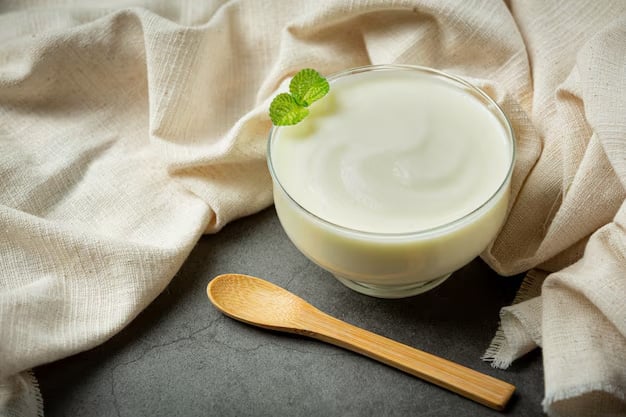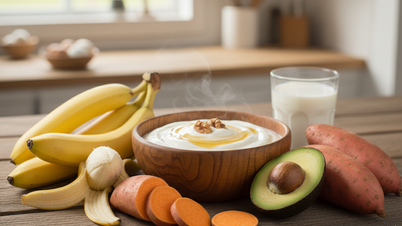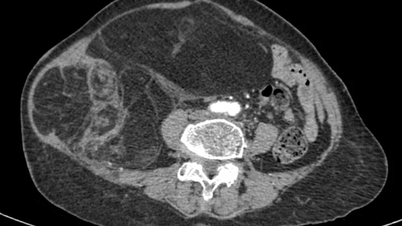Yogurt may also help reduce the risk of certain types of colorectal cancer - Photo: FREEPIK
According to Medical News Today , lifestyle factors such as physical inactivity, smoking, obesity, excessive alcohol consumption, high intake of processed meats and low intake of fruits and vegetables can increase the risk of developing colorectal cancer. Meanwhile, a healthy, high-fiber diet, with plenty of fresh fruits, vegetables, whole grains, calcium and dairy products will reduce the risk of colorectal cancer.
Yogurt and colorectal cancer
A study led by scientists at Mass General Brigham, published in the journal Gut Microbes , found that yogurt may also help reduce the risk of certain types of colorectal cancer.
Researchers found that people who ate two or more servings of yogurt containing live bacteria per week had a 20% lower risk of developing colorectal tumors that tested positive for Bifidobacterium, a common strain of bacteria found in the gut microbiome.
Dr Gemma Balmer-Kemp, head of research at Cancer Grand Challenges, one of the study's sponsors, said: "The study provides new evidence of the potential benefits of yogurt in reducing the risk of a specific type of colorectal cancer."
She also emphasized: "This study shows a correlation between long-term yogurt consumption and a lower incidence of colorectal cancer. However, further research is needed to determine the role of Bifidobacterium and the mechanisms involved."
Do probiotics help fight cancer?
Live culture yogurt contains several different strains of bacteria. Lactobacillus bulgaricus and Streptococcus thermophilus are commonly used to ferment milk into yogurt, but many other strains of bacteria, such as probiotics, can also be added.
Research has shown that probiotics can boost the immune system, improve gut health, reduce the risk of osteoporosis, type 2 diabetes and cardiovascular disease, and may even reduce the risk of certain cancers.
To examine the link between yogurt consumption and colorectal cancer risk, researchers used data from two long-term studies that have followed more than 100,000 female nurses since 1976 and 51,000 male healthcare workers since 1986.
Although the study did not find a significant association between long-term yogurt consumption and total colorectal cancer cases, they did find a 20% lower incidence of Bifidobacterium -positive tumors in people who ate more yogurt.
While plain yogurt is a good part of a balanced diet, not all yogurts are healthy. Flavored yogurts and fruit yogurts often contain lots of added sugars and unhealthy ingredients.
Which yogurt is good for health?
Natural yogurt contains many important nutrients such as calcium, phosphorus, potassium, vitamins A, B2, B12, protein and essential fatty acids, probiotics - live microorganisms that are beneficial to health.
Some yogurts also have special benefits. For example, whole-fat Greek yogurt can help strengthen bones, build muscle, and reduce the risk of diseases such as high blood pressure, type 2 diabetes, and some mental disorders.
Additionally, although drinking a lot of milk (about 4 glasses/day) can increase the risk of cardiovascular disease, fermented milk products such as yogurt and kefir provide essential nutrients without negative effects on the cardiovascular system.
There are no specific recommendations for how often to eat yogurt, but adding about 1 cup to your diet a few times a week, or daily, may benefit your gut microbiome.
If you don't like yogurt, there are plenty of other fermented food options like coconut kefir, kimchi, miso, and sauerkraut, all of which contain probiotics that help maintain a healthy gut microbiome.
Source: https://tuoitre.vn/sua-chua-co-the-giup-giam-nguy-co-mac-ung-thu-dai-truc-trang-20250217190923497.htm




![[Photo] Prime Minister Pham Minh Chinh receives the Chairman of the Japan-Vietnam Friendship Association in the Kansai region](https://vphoto.vietnam.vn/thumb/1200x675/vietnam/resource/IMAGE/2025/11/03/1762176259003_ndo_br_dsc-9224-jpg.webp)

![[Photo] General Secretary To Lam receives Singaporean Ambassador Jaya Ratnam](https://vphoto.vietnam.vn/thumb/1200x675/vietnam/resource/IMAGE/2025/11/03/1762171461424_a1-bnd-5309-9100-jpg.webp)

![[Photo] Lam Dong: Close-up of illegal lake with broken wall](https://vphoto.vietnam.vn/thumb/1200x675/vietnam/resource/IMAGE/2025/11/03/1762166057849_a5018a8dcbd5478b1ec4-jpg.webp)










































































































Comment (0)